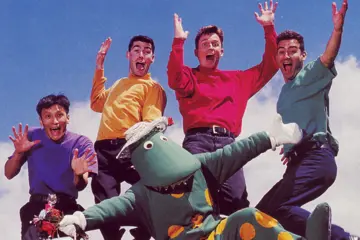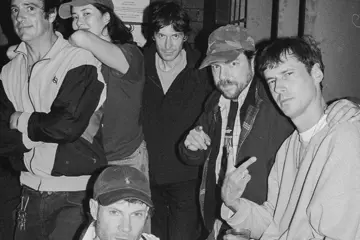If the Internet is to be believed, that wise sage Pink once offered that, “Sometimes it takes a tragedy to bring people together. Other times it just takes music”. But what happens when that tragedy is literally keeping people apart, and one of the hardest sectors hit by the ensuing mayhem is the live music industry?
The rapidly escalating spread of coronavirus is wreaking major havoc through countless sectors of society, but without doubt one of the hardest areas hit has been the live music industry. And unfortunately there’s no sign of relief in sight, in fact the already grim scenario is no doubt going to get significantly worse before it even hints at getting better.
While the medical world rushes to come to terms with this new reality one of the few facts known with any certainty is that public gatherings definitely contribute to the spread of COVID-19, which obviously includes live music concerts in all of their various incarnations.
Festivals are cancelling all over the world as fear about the virus spread escalates: in America, SXSW and Ultra Music Festival have already pulled the pin on their 2020 installments while Coachella has been postponed for six months hoping that the pandemic will have abated by then. Closer to home, Download Festival was cancelled today, while Dark Mofo also announced that this year’s shindig isn’t going ahead, with many more festivals rumoured to be following their lead in coming days. Acts as disparate as Pixies and Miley Cyrus have already cancelled Australian performances, while others such as Green Day, Slipknot and Stormzy have cancelled Asian tours and Pearl Jam have significantly delayed the opening US leg of their Gigatron world tour.
Don't miss a beat with our FREE daily newsletter
Even the size of events under the gun with officialdom is diminishing as rapidly as the reach of coronavirus is increasing: French authorities initially banned gatherings of over 5,000 people in a confined venue, until a few days ago when they amended it to cover all gatherings of over 1,000 people period.
In San Francisco, the city recently banned “non-essential group events” – which they defined as “any congregation of 50 or more people for any social, cultural, entertainment or other special event or other non-essential purpose where people are not separated by physical space of at least four feet (which is slightly longer than an average arms’ length)” – for a provisional period of two weeks. That doesn’t seem like a long time, but be under no illusion that this won’t be extended if a miracle doesn’t happen and the coronavirus threat hasn’t been averted in the meantime.
So with both festivals and smaller gigs under threat in the immediate future where does this leave live music? In an industry already rife with uncertainty the pandemic is potentially going to have a massive financial impact on so many fronts – artists, venues, promoters, music press and peripheral workers such as tour managers and crew will all be hit hard in the hip pocket – which could in turn bring whole sectors of the music scene to its knees. There’s obviously an obligation to the more vulnerable members of society to keep the coronavirus as contained as humanly possible, but the cultural void left for countless live music fans will no doubt extract a heavy emotional toll as well.
Now, in this time of unprecedented need, could the Internet and its myriad of technological possibilities– so long considered the bane of the music industry as it struggled to come to terms with the new digital landscape – actually come to the rescue?
The stringent Chinese quarantine lockdowns which kicked in mid-February as they struggled to contain the virus at ground zero forced all live music venues to shut, which in turn prompted both musicians and their fans to become more innovative and alleviate boredom and social isolation by organising “bedroom music festivals” and live-streamed club nights.
And by all accounts it’s going gangbusters, with everyone from pop and hardcore punk bands to techno and experimental improvisation acts all amongst the action and reigniting that connection to their fanbase from the safety of their own homes. Prominent indie labels are streaming artist showcases and venues are considering ticketed live performances, meaning that a whole new form of online industry has quickly sprung up amidst the adversity.
Interestingly, some people believe that the mayhem caused to live music by the coronavirus will just hasten a move online for the live music experience that had already been in motion for a significant period.
While conceding that the proper live music experience will always be superior, Nicolas Vandenabeele – founder of Envie Productions who have been live streaming dance festivals in the UAE since 2016 – recently offered about music’s increasing presence online that, “I predict that soon, as part of ticket sales, you will be able to buy live streaming [tickets] and witness the concert on your sofa with friends... There are a lot of festivals already streaming part of their events online. Coronavirus just made people more aware of options to protect themselves”.
While this all is no doubt encouraging, in the short term where does this leave the average Australian musician? Since the decline of record sales kicked in (largely due to the advent of downloads and streaming services) artists rely more than ever these days on money generated from live shows – whether that’s ticket revenues or merch monies – so while it’s all well and good that they still have the capability to reach their audience via the internet, is it going to solve their financial conundrum if they can’t properly monetise that connection?
With things having escalated so rapidly subscription and pay-per-view models seem logistically out of reach for the average muso and their management team, but perhaps this is where the recent online phenomenon of the “donation economy” could come into play. While Western streaming services like Spotify and Pandora have been operating in the red for years as they struggle to make streaming a profitable concern, their Chinese equivalent Tencent is making significant profits largely because they rely on China’s burgeoning micropayment economy. Rather than fans buying paid streaming subscriptions this allows them to “tip” their favourite artists, bloggers or live-streamers through websites or mobile apps.In 2019 Forbes article, Tipping Streamers: The Donation Economy Is Being Built, But Can It Last? it was espoused that this brave new world is booming because “people feel connected to what’s happening. They donate to the person they’re watching, which can influence what that streamer does on video. It’s a much more tangible connection than that of social media”.
Furthermore, the advent of blockchains theoretically makes micropayments possible by eliminating transaction fees, and there are a growing number of donation platforms like Substack or the Lightning Network and membership platforms like Patreon connecting artists with fans in a way that (hopefully) isn’t going to lead to contamination or illness for any of the parties involved.
And the poor punters? While there will definitely be the odd positive to arise from this new online experience – you can watch your favourite band while drinking beer at genuine 1970s pub prices (ie takeaway), no more getting your view obstructed by that tall guy, no dress code and no dickheads around to spoil the experience (one hopes) plus of course the whole ‘not getting coronavirus’ thing – but it’s not really going to be the same as going to an actual gig.
Part of the charm of the live music experience is discretely blending in to the crowd of people who you mainly don’t know but are united with by shared artistic taste, seeking sanctuary and solace in numbers and darkness and volume. It’s an inherently communal – almost tribal – experience, and one that isn’t quite going to translate properly when viewed in isolation through a TV or computer screen. But, hey, beggars can’t be choosers.
Obviously moving gigs online isn’t a long-term solution, yet – in this time of uncertainty, where the only predictability is unpredictability – it could still provide musicians and music lovers with a live music fix during the impending apocalypse which, compared to the concert-less alternative, is ultimately all us gig pigs can really hope for. As they say in the classics, what a time to be alive...
For more information about how COVID-19 is impacting the music industry, follow the link here.















